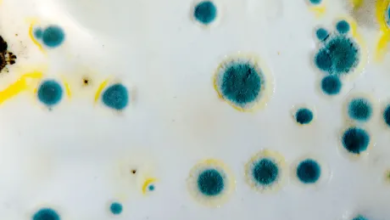
Congratulations on your new teeth implants! Investing in your oral health and regaining your smile is a significant step towards improved confidence and overall well-being. However, just like with any dental procedure, proper aftercare is essential to ensure the success and longevity of your new implants.
This comprehensive guide will walk you through everything you need about caring for your Cutting-edge Dental Implants in Essendon. From immediate post-operative care to long-term maintenance, we’ve got you covered.
Immediate Post-Operative Care
Immediately after the implant surgery, it’s normal to experience some discomfort, swelling, and minor bleeding. Your dentist will provide specific instructions tailored to your individual needs, but here are some general guidelines to follow:
- Take medications: Your dentist may prescribe pain relievers or antibiotics to manage discomfort and prevent infection. Be sure to take these medications as directed.
- Apply ice packs: To reduce swelling and discomfort, add ice packs to the affected area for 15-20 minutes, with 20-minute breaks.
- Avoid strenuous activities: Rest and avoid any strenuous activities for the first few days following surgery to promote healing.
- Stick to soft foods: In the initial days post-surgery, stick to soft foods that are gentle on your implants and surrounding tissues. Avoid hot and spicy foods that may irritate the surgical site.
New Teeth Implants Essendon: The Importance of Oral Hygiene
Once the initial healing period has passed, maintaining good oral hygiene is crucial for the long-term success of your new teeth implants. Here’s what you need to do:
- Brushing and flossing: Brush your teeth at least twice daily with a soft-bristled toothbrush and fluoride toothpaste. Floss daily to remove plaque and food particles between teeth and the implants.
- Use interdental brushes: Besides regular flossing, consider using interdental brushes to clean hard-to-reach areas around the implants.
- Antimicrobial mouthwash: Rinse with an antimicrobial mouthwash to reduce bacterial growth and keep your mouth clean and fresh.
- Regular dental check-ups: Schedule regular check-ups with your dentist in Essendon to monitor the health of your implants and address any issues promptly.
Dietary Considerations
While you can gradually transition back to your regular diet after the initial healing period, there are some dietary considerations to keep in mind to protect your new teeth implants:
- Avoid hard and sticky foods: Hard and sticky foods can put undue stress on your implants and may cause damage. Stick to softer foods and avoid chewing on complex objects like ice or pens.
- Limit sugary snacks: Sugary snacks and beverages can contribute to plaque buildup and increase the risk of gum disease. Limit your intake of sugary foods and drinks to maintain optimal oral health.
- Stay hydrated: Drink plenty of water throughout the day to keep your mouth moist and help wash away food debris and bacteria.
- Consume calcium-rich foods: Incorporate calcium-rich foods into your diet to support the health of your jawbone and surrounding tissues. Foods such as dairy products, leafy greens, almonds, and fortified plant-based milk are excellent calcium sources, essential for maintaining strong teeth and bones.
Long-Term Maintenance
Your new teeth implants can last a lifetime with proper care and maintenance. Here are some tips for long-term success:
- Quit smoking: Smoking can impair healing and increase the risk of implant failure. If you smoke, consider quitting to improve the health of your implants and overall well-being.
- Protect your implants: If you play contact sports or grind your teeth at night, consider wearing a mouthguard to protect your implants from damage.
- Stay vigilant: Pay attention to any changes in the look or feel of your implants, such as pain, swelling, or mobility. If you notice any issues, immediately contact your dentist in Essendon for evaluation.
- Attend regular dental cleanings: Professional dental cleanings are essential for removing plaque and tartar buildup that can accumulate around your implants and lead to gum disease. Schedule regular cleanings with your dentist or dental hygienist to keep your implants clean and healthy.
- Monitor your bite: Pay attention to how your implants feel when biting and chewing. If you notice any changes in your bite or discomfort when eating, it could indicate issues with your implants that need to be addressed by your dentist.
Conclusion
Caring for your new teeth implants in Essendon is essential for ensuring a healthy recovery and long-term success. Following the tips outlined in this guide and staying proactive about your oral health, you can enjoy a beautiful smile and improved quality of life for years. If you have any questions or concerns about your implants, don’t hesitate to contact Dental Essence for guidance and support.



